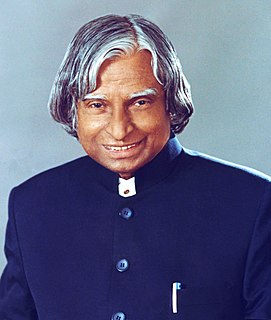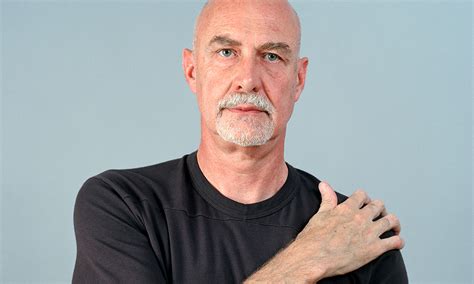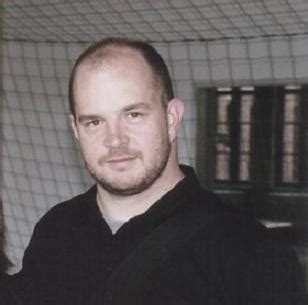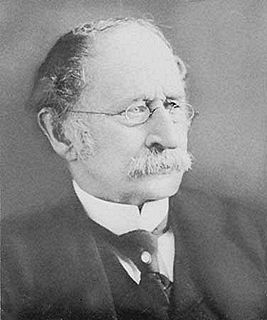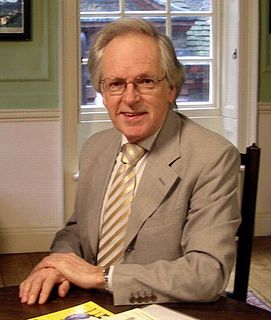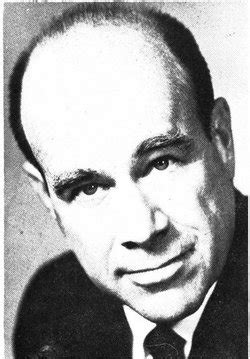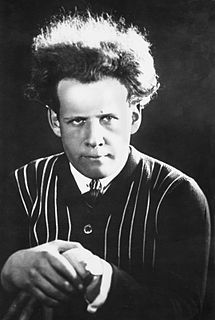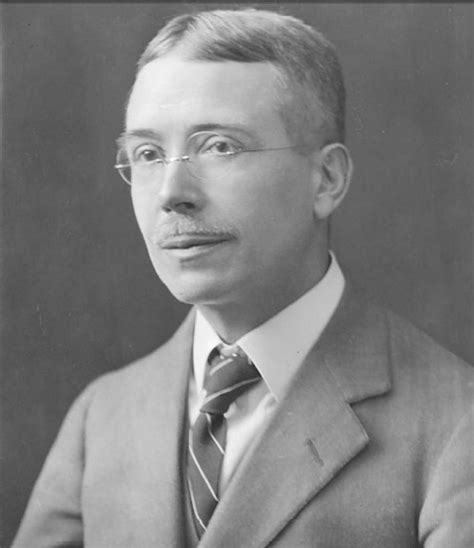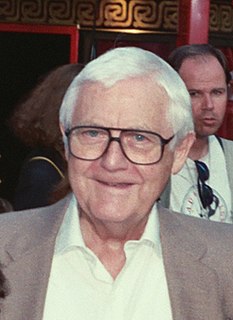Top 180 Quotation Quotes & Sayings - Page 3
Explore popular Quotation quotes.
Last updated on April 17, 2025.
The trouble with being a secular humanist is that we don't have a congregation. We don't meet so it's a very flimsy tribe, but there's a wonderful quotation from Nietzsche. Nietzsche said, Only a person of deep faith can afford the luxury of skepticism. Something perfectly is going on. I do not doubt it, but the explanations I hear do not satisfy me.
This is one of the results of that adventurous spirit which is now stalking forth and raging for its own innovations. We have not only rejected AUTHORITY, but have also cast away EXPERIENCE; and often the unburthened vessel is driving to all points of the compass, and the passengers no longer know whither they are going. The wisdom of the wise, and the experience of ages, may be preserved by QUOTATION.
Who would think of buying or selling a private business because of someone's guess on the stock market? The availability of a quotation for your business interest (stock) should always be an asset to be utilized if desired. If it gets silly enough in either direction, you take advantage of it. Its availability should never be turned into a livability whereby its periodic aberrations in turn formulate your judgements.
Evidently stockholders have forgotten more than to look at balance sheets. They have forgotten also that they are owners of a business and not merely owners of a quotation on the stock ticker. It is time, and high time, that the millions of American shareholders turned their eyes from the daily market reports long enough to give some attention to the enterprises themselves of which they are the proprietors, and which exist for their benefit and at their pleasure.
I illustrate with a quotation from the atheist philosopher Richard Rorty, who died recently and is, I suspect, now having a lengthy conversation with his maker. Rorty argued that secular professors ought “to arrange things so that students who enter as bigoted, homophobic religious fundamentalists will leave college with views more like our own.
Wouldn't the sentence 'I want to put a hyphen between the words Fish and And and And and Chips in my Fish-and-Chips sign' have been clearer if quotation marks had been placed before Fish, and between Fish and and, and and and And, and And and and, and and and And, and And and and, and and and Chips, as well as after Chips?
Art is theft”) and Igor Stravinsky (“Lesser artists borrow, great artists steal”), I’ve always stolen from the people I admire – not plagiarized, mind you, but stolen bits of ideas and stylistic influences. If you steal widely enough, after all, your models are inevitably changed and the result is in the end completely yours. Kleon cites André Gide to this point, in a quotation I love: “Everything that needs to be said has already been said. But, since no one was listening, everything must be said again.
Hegel seems to me to be always wanting to say that things which look different are really the same. Whereas my interest is in showing that things which look the same are really different. I was thinking of using as a motto for my book a quotation from King Lear: 'I’ll teach you differences'. ... 'You’d be surprised' wouldn’t be a bad motto either.
I think the effective use of quotation is an important point in the art of writing. Given sparingly, quotations serve admirably as a climax or as a corroboration, but when they are long and frequent, they seriously weaken the effect of a book. We lose sight of the writer - he scatters our sympathy among others than himself - and the ideas which he himself advances are not knit together with our impression of his personality.
The most superficial fact regarding the 'Discourses,' the fact that the number of its chapters equals the number of books of Livy's 'History,' compelled us to start a chain of tentative reasoning which brings us suddenly face to face with the only New Testament quotation that ever appears in Machiavelli's two books and with an enormous blasphemy.
Communication requires cultural context, and technology facilitates our ability to cross-reference ideas over time. Charles Moore were saying: Enough with the sterile, context-less architecture. Enough with the functional-minded frame of operation. How about a little mess? How about a little, let's say, syntax? A little quotation using history? How about some other meanings or symbols? I think that's the only logical reaction when you have to thoughtfully manage the communication of a lot of information.
Rebecca was an academic star. Her new book was on the phenomenon of word casings, a term she'd invented for words that no longer had meaning outside quotation marks. English was full of these empty words--"friend" and "real" and "story" and "change"--words that had been shucked of their meanings and reduced to husks. Some, like "identity" and "search" and "cloud," had clearly been drained of life by their Web usage. With others, the reasons were more complex; how had "American" become an ironic term? How had "democracy" come to be used in an arch, mocking way?
The Bible... provides no guide to reading the Bible. In fact, it is full of such inconsistencies, contradictions, lacunae, obscurities, baffling tales, and poetic imagery that to quote it at all is to select from conflicting alternative passages. Every quotation is therefore necessarily an interpretation.
Quotation... A writer expresses himself in words that have been used before because they give his meaning better than he can give it himself, or because they are beautiful or witty, or because he expects them to touch a cord of association in his reader, or because he wishes to show that he is learned and well read. Quotations due to the last motive are invariably ill-advised; the discerning reader detects it and is contemptuous; the undiscerning is perhaps impressed, but even then is at the same time repelled, pretentious quotations being the surest road to tedium.
If physicists could not quote in the text, they would not feel that much was lost with respect to advancement of knowledge of the natural world. If historians could not quote, they would deem it a disastrous impediment to the communication of knowledge about the past. A luxury for physicists, quotation is a necessity for historians, indispensable to historiography.
When I first collected these authorities, I was desirous that every quotation should be useful to some other end than the illustration of a word; I therefore extracted from philosophers principles of science; from historians remarkable facts; from chymists complete processes; from divines striking exhortations; and from poets beautiful descriptions.
When a fissure off the California coast started pumping and dumping oil on the nearby towns and beaches, everybody started dumping on Union Oil. Matters weren't helped one iota by a manufactured quotation attributed to Union's president, Fred Hartley, alleging his amazement at the publicity for the loss of a few birds.... Fred Hartley never said what the press reported, as the transcript and the Senate committee members definitely established. But I don't suppose the truth will ever catch up with the more colorful falsehood.
Books are attracted to me. They make a beeline for me, and stick to me. I have been so fond of them that at last they have begun to reciprocate. In my hands books burst like ripe fruit. Like magic flowers they unfold their petals to show me the vital thought, the suggestive word, the confirming quotation, the decisive illustration.
What I had thought were signs of a broken educational system - the seemingly random placement of commas, the spastic syntax, the obnoxious overuse of quotation marks, the goofy misspelling of 'Jouralism' - were actually signs of the New Instantaneousness. 'Instant Jouralists' cannot be concerned with punctuation and grammar and spelling. That stuff just 'slows you down.' To be an 'Instant Jouralist,' you have to write as if you were being pursued by a cheetah across the Serengeti.
All life is an experiment. Place yourself in the middle of the stream of power and wisdom which animates all whom it floats, and you are without effort impelled to truth, to right and a perfect contentment. I wish to write such rhymes as shall not suggest a restraint, but contrariwise the wildest freedom. Immortality. I notice that as soon as writers broach this question they begin to quote. I hate quotation. Tell me what you know.
It is generally supposed that where there is no QUOTATION, there will be found most originality; and as people like to lay out their money according to their notions, our writers usually furnish their pages rapidly with the productions of their own soil: they run up a quickset hedge, or plant a poplar, and get trees and hedges of this fashion much faster than the former landlords procured their timber. The greater part of our writers, in consequence, have become so original, that no one cares to imitate them; and those who never quote, in return are never quoted!
I looked up and saw my flag. But I didn't hear my anthem. The quotation above from 6 ft 4 inch, 286 pound Silver Medalist Ghaffari (who broke down in tears on the medal stand) summed up his disappointment after an overtime loss to Aleksandr Karelin of Russia. A win would have given Ghaffari not only the Olympic gold medal but also his first victory over Karelin, something of which he has literally dreamed about after 20 meets between the two. Karelin dominates international competition in the sport.
The investor has the benefit of the stock market's daily and changing appraisal of his holdings, 'for whatever that appraisal may be worth', and, second, that the investor is able to increase or decrease his investment at the market's daily figure - 'if he chooses'. Thus the existence of a quoted market gives the investor certain options which he does not have if his security is unquoted. But it does not impose the current quotation on an investor who prefers to take his idea of value from some other source.
It is surprising to see what superficial, inconsequential reasonings satisfy the most part of mankind. A piece of wit, a jest, a simile, or a quotation of an Author, passes for a mighty argument.... This weakness and effeminacy of mankind in being persuaded where they are delighted, have made them the sport of orators, poets, and men of wit.
The habit some writers indulge in of perpetual quotation is one it behooves lovers of good literature to protest against, for it is an insidious habit which in the end must cloud the stream of thought, or at least check spontaneity. If it be true that le style c'est l homme, what is likely to happen if l homme is for ever eking out his own personality with that of some other individual?
For me, it's a way to find a fiction within a fiction. To find a way to uncover that blunder within the "lie," because when you look closer, every "lie" - and I say that with quotation marks - can be much more complicated. Because that is what fiction is: it's probably the least important thing in the world. It's rich, but it is put-on, it passes the time. It borrows from the world, but it does not invent it.
You said, 'I love you.' Why is it that the most unoriginal thing we can say to one another is still the thing we long to hear? 'I love you' is always a quotation. You did not say it first and neither did I, yet when you say it and when I say it we speak like savages who have found three words and worship them. I did worship them but now I am alone on a rock hewn out of my own body.
Indeed a good quotation hardly ever comes amiss. It is a pleasing break in the thread of a speech or writing, allowing the speaker or writer to retire for an instant while another and greater makes himself heard. And this calling-up of the deathless dead implies also a community of mind with them, which the reader will not grudge the author lest he should seem to deny it to himself.
My toils in the quotation field have led me to formulate two or three laws about the way people use and abuse quotations. My first law is: When in doubt, ascribe all quotations to Bernard Shaw - which I don't mean to be taken literally, but as a general observation of the habit people have of attaching remarks to the nearest obvious speaker. Churchill, Wilde, Orson Welles and Alexander Woollcott are other useful figures upon whom to father remarks when you don't know who really said them.
The surest way to make a monkey of a man is to quote him. That remark in itself wouldn’t make any sense if quoted as it stands. The average man ought to be allowed a quotation of no less than three sentences, one to make his statement and two to explain what he meant. Ralph Waldo Emerson was about the only one who could stand having his utterances broken up into sentence quotations, and every once in a while even he doesn’t sound so sensible in short snatches.
In a print interview, as you may or may not know, they [editors] can do whatever they want. And they do. This is why most people are more hesitant to do print, because they can change it, and they do change it. They even change things that are in quotation marks, which is a pet peeve of mine. I've said to numerous reporters, "Would you read me back my direct quotes?" And they always say no. They always say that's against the policy.




